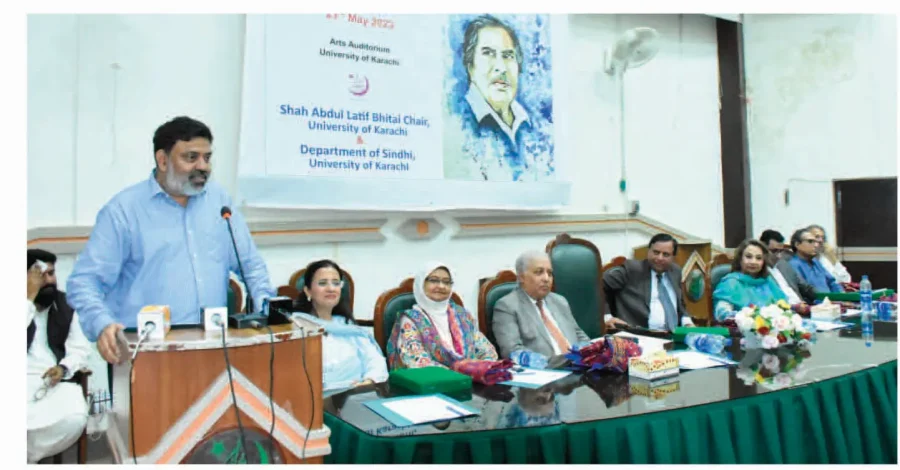The University of Karachi’s Shah Abdul Latif Bhitai Chair and the Department of Sindhi in collaboration with the Sindh Culture Department arranged a Shaikh Ayaz centennial conference at the Arts Auditorium on Tuesday.
The KU Vice Chancellor Professor Dr Khalid Mahmood Iraqi while addressing the opening session of the conference said that Shaikh Ayaz Alamgir was a great poet who believed in universal human peace. “The poet reflects society through his poetry and Shaikh Ayaz not only highlighted the social problems through his poetry but also created awareness among the people.”
He termed that when a poet speaks the truth, he has to pay the price, and Shaikh Ayaz paid that price like Faiz Ahmad Faiz and other poets. The KU VC Professor Dr Khalid Iraqi said that Shaikh Ayaz’s thought was progressive. “We need to popularize Shaikh Ayaz’s concern among our students. Shaikh Ayaz was a great poet of Sindh, and his legacy of thought will always guide the people of the province.”
Meanwhile, Professor Dr Syed Jafar Ahmad in his keynote address said that Shaikh Ayaz understand the requirements of this century very deeply and tried to evaluate his art according to those conditions.
He mentioned that in Sindh many great intellectual personalities were born who have cultivated their thought to benefit the region as well as the world and Shaikh Ayaz was one of them. He said that Shaikh Ayaz’s poetry is free from racial bias, and had excellence in landscape painting.
Dr Jafar Ahmed mentioned that Shaikh Ayaz has translated Shah Abdul Latif Bhitai’s poetry into Urdu and spent his life fighting against cruelty like Faiz Ahmed Faiz. “Shaikh Ayaz is such a poet of this region whose impressions will continue to be made even today and tomorrow.”
The Director of KU Shah Abdul Latif Bhitai Chair Professor Salim Memon said that Shaikh Ayaz was a world-class poet, who started poetry at a young age and also wrote fiction and had a good command over different aspects of literature. He mentioned that imprints of Shaikh Ayaz’s poetry are visible in Sindhi literature even today.










